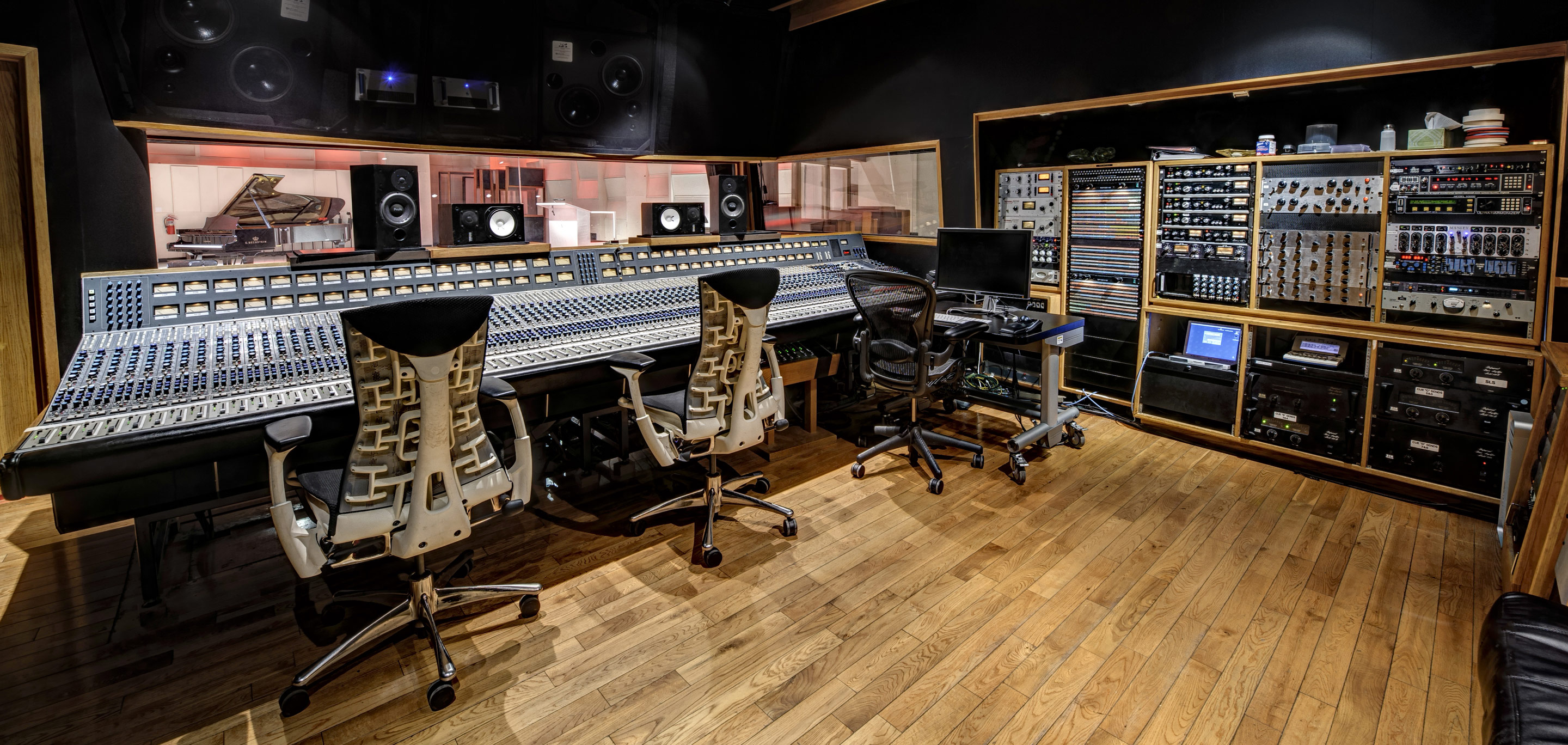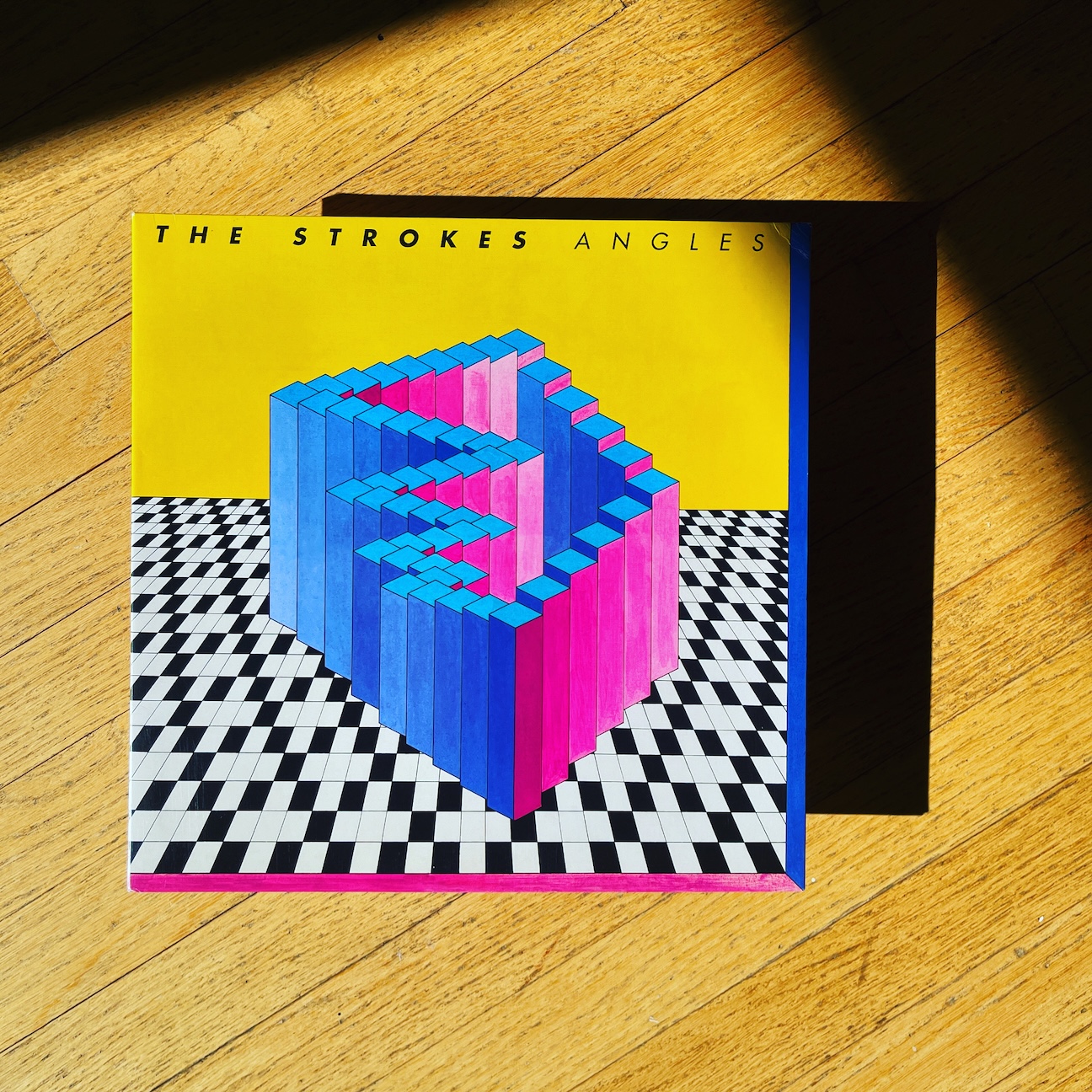Joe Chiccarelli is a Man in the Right Place with the Right Sound
The Grammy Award Winning Producer Talks Mastering Emotion, Mixing Detail, and How Our Ears Are Still Analog
Above photo credit: Ana Gibert
Show business is packed with success stories born not just from talent, but also by being in the right place at the right time—backed up by a relentless work ethic. That’s how Joe Chiccarelli got his audio engineering start, setting him on a path to become a Grammy-winning producer. As the story goes, when Frank Zappa’s regular engineer couldn’t make a Sheik Yerbouti session Joe was called in as the backup and grabbed on to the opportunity of a lifetime. What happened next? Well, let’s just say...you already know how the rest of that saying goes.
Since that pivotal moment, the Boston-born Chiccarelli has built a career that’s nothing short of legendary. Where does one even begin? He’s worked with an impressive lineup: The White Stripes, The Shins, The Killers, The Strokes, The Raconteurs, Morrissey, My Morning Jacket, Beck, U2, Tori Amos, and Elton John: the list goes on. He’s racked up 11 Grammy wins (and 10 nominations), and beyond producing and engineering, he’s always innovating—pushing the boundaries of what’s possible in the studio.
In the interview ahead, we dive into the arc of his remarkable career, explore his approach to both recording and listening, and get into the details of his latest project: producing Steve Bardwil’s debut album, Nothing But Time.
Evan Toth: From your work with Frank Zappa to The Strokes to Jason Mraz, what fundamental principles of recording have stayed with you from your early analog days through today’s digital-dominated sessions?
Joe Chiccarelli: I’ve always thought of music and recordings as cinematic all enveloping experiences. I try very hard on each project to create a world unique to that artist. I go back to a time as a teenage music listener where I was transported into a new world with every new album I experienced. So creating something that is dynamic, fresh, risk taking and pushing boundaries is the most important thing for me. I like to always look forward to the new possibilities.
ezt: You’ve engineered Zappa’s Sheik Yerbouti and produced Spoon and Morrissey, how do you adapt your production approach across such wildly different genres without losing your personal touch?
jc: The key is I try not to have a personal touch. It’s about the artist and what they are trying to create. I try to expand on that , perhaps open new doors for them and enhance their strengths and build up any weakness. I work very hard to not have ‘a sound’ of my own: the wall of distortion that is the album for the band Liily, the retro surf sound of Cayucas or the emotional ride of new artist Jake Wesley Rogers. They are all very different. Every album I did for Frank Zappa as a young engineer sounds very different from the previous one. Every album I’ve produced for Morrissey sounds unique. Mostly because he as an artist is trying some new direction for each album just as Frank tried new methods, musicians and recording techniques every time he entered the studio.
ezt: You were involved in some key analog productions of the 20th century and beyond. In the age of plugins and AI mastering, where do you stand in the analog vs. digital debate—both sonically and philosophically?
jc: To me they are all just paint for the canvas. Just different colors to choose from. The world of digital opened up so many new possibilities for me. Things that took days to achieve in the analog world take seconds to achieve now. One can never say ‘you can’t do that’. I bought my first ProTools system, a very costly system then, in 1999. I’ve never looked back. I’ve always tried to embrace a new technology even when I felt the sound quality wasn’t quite there yet. I tried to become a part of it and help improve it. Simply put, I love new tools. They are there to help you try new approaches and achieve sounds you only dreamed were possible.
ezt: One of your most recent productions was working with The Steve Bardwil Band. His group is a blend of multi-generational, stylistically diverse musicians — what were the creative challenges and rewards in producing a group with that kind of collaborative, ‘no ego’ dynamic?
jc: The Steve Bardwil Band is very much a band . It was a fun process. The rehearsal pre-production process was very collaborative. Everyone was open and contributed to trying new grooves and arrangements. They are all wonderful musicians and really work hard to support Steve’s songs and stories. There is a wonderful positivity and honesty to Steve’s songwriting. The recording process was very fun and easy. The most difficult part of the process was that we recorded it during a week of historic torrential storms in LA. The difficult part was just actually getting to the studio!
ezt: Given your history with rock legends and iconic studios, how did recording at East West Studios influence your approach to capturing the energy of Bardwil’s sound — especially with such a live-band chemistry? You have your own studio there as well; tell me about your relationship with the space.
jc: East West is clearly one of the very best studios on the planet, designed by Bill Putnam of UA audio in the 1950’s. Bill was Frank Sinatra’s recording engineer. These rooms are built to make acoustic instruments come to life. A great acoustic space is crucial to capturing a great performance. These rooms have both state of the art technology as well as all the vintage recording gear that one would ever need to record any genre of music. My personal studio is in the space where Sinatra started his own label, Reprise Records. What could be more inspiring to enter that building every day and hope to be a part of that history?
 The control room in Studio One at EastWest Studios
The control room in Studio One at EastWest Studios
ezt: With Steve being a lifelong student of rock & roll, were there any intentional nods to classic rock production styles that you incorporated into the recording process, or did you aim for a more modern interpretation of his vision?
jc: I think we tried to embrace the classics like the albums Phil Ramone made with Billy Joel and Paul Simon. Great musicians , great microphones, a great engineer in Bill Mims and certainly never being afraid of diving into new technologies where appropriate. We used microphones like a Neumann U47 as well as a Tonelux C37 on Steve’s voice. Sound Techniques preamps and Fab Filter eq and Waves Multiband compressor plugins.
.jpg) The Steve Bardwil Band. Photo by Joy Watanabe
The Steve Bardwil Band. Photo by Joy Watanabe
ezt: Many audiophiles swear by the warmth and 'imperfection' of analog. As someone who’s worked extensively on both sides, can you share a specific session or record where analog gear made a tangible difference to the final sound?
jc: Even though we recorded in ProTools we used high quality Burl Audio A to D and D to A converters. My personal system uses a Burl Summing Mixer and all my final mix chain is classic analog gear. I’m always recording at 32bit /96K. I have since working with trumpeter Chris Botti in the year 2000. I never work below 96K. So keeping the highest possible audio resolution is important to me.
ezt: With access to every modern tool imaginable, are there any ‘outdated’ recording techniques or gear that you still insist on using in today’s sessions—and why?
jc: Nothing is outdated. What is old becomes new again. Occasionally I’ll print to analog tape as a choice of color to give the music that rounded off glued together sound. So even old cassette machines get used to add some lofi color when needed.
ezt: Your work on Icky Thump earned a Grammy for engineering. What was the most unconventional technique or decision you made during that album’s production that you're still proud of?
jc: I actually earned a Best Engineered Grammy with Jack White and Vance Powell for The Raconteurs Consolers of the Lonely. We did also win a Grammy for Best Alternative Album for Icky Thump. I’ve been nominated four times in the Best Engineered category and nominated as Producer of the Year as well. It’s an incredible validation and honor to receive from your peers. I never take it lightly.
Working with Jack White you are always pushing the limits of technology. The entire process was unconventional. Meg and Jack are an explosive duo. All along the way Jack always trusted me, gave me confidence and inspired me to try the unique and unusual. Just like Frank Zappa - he’s fearless. I think that ’s what being a great artist is all about.
ezt: When working with bands that have a strong identity—like The White Stripes or Morrissey—how do you balance honoring their aesthetic with pushing them creatively in the studio?
jc: Absolutely working with My Morning Jacket, Spoon, The Strokes, Broken Social Scene. I’m always supporting them, challenging them, Inspiring them and even questioning them. It’s the process of moving forward and trying to achieve their vision.
 One of Toth's favorite records featuring Chiccarelli's handiwork.
One of Toth's favorite records featuring Chiccarelli's handiwork.
ezt: In a world of compressed streaming audio, how does the resurgence of vinyl influence the way you approach production and mastering? Are you consciously crafting albums differently for analog playback?
jc: I’m thrilled to go to people's homes and see them embracing vinyl. The tactile sensation of opening a record, placing it on the turntable. It’s a wonderful ritual. Vinyl sounds great these days. The test pressings of Steve’s album we received from East European pressing plants were truly impressive. I just go for the best listening experience. Our ears are still analog.
ezt: For the audiophile listener spinning vinyl at home, is there a particular album you’ve worked on that you think truly shines on vinyl—and what should they listen for in that recording?
jc: The Shins, Wincing the Night Away, Emily Lazar’s mastering is perfection. Keaton Henson’s, Birthdays for the beautiful emotional ride. Jason Mraz’s, Love is A Four Letter Word for the brilliance of Tony Maserati’s mixes.


.jpg)




































.png)








